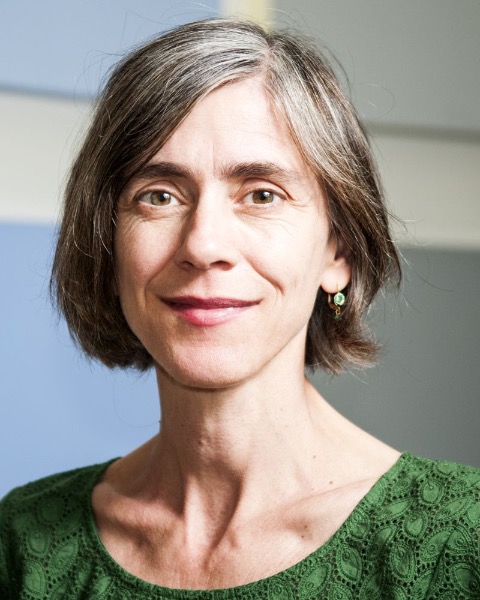Theme: 5. Transmitting Knowledges: Institutions, Objects and Practices
Re-engaging environmental knowledge. Sites and politics of heritage, spiritual care and medi(t)ation in Indonesia and Southeast Asia, in the nineteenth and twentieth centuries
-

Marieke Bloembergen
Royal Netherlands Institute of Southeast Asian & Caribbean Studies (KITLV), Netherlands
-

Marieke Bloembergen
Royal Netherlands Institute of Southeast Asian & Caribbean Studies (KITLV), Netherlands
-
AT
Ashley Thompson
SOAS University of London, United Kingdom
-
SS
Sorawit Songsataya
None, New Zealand
-
PA
Panggah Ardiyansyah
SOAS University of London, United Kingdom
-

Marieke Bloembergen
Royal Netherlands Institute of Southeast Asian & Caribbean Studies (KITLV), Netherlands
-
CJ
Clara Jo
Atelier KITLV-Framer Framed, Germany
-
TH
Theo Frids Hutabarat
Universitas Katolik Parahyangan, Indonesia
Panel Convenor(s)
Panel Chair(s)
Panel Discussant(s)
Presenter(s)
This double panel (back-to-back) brings together scholars, artists, and environmental activists-caretakers, to re-engage with forms and politics of knowledge which sites and objects of religious/ spiritual care in Indonesia and Southeast Asia have generated over time (since the nineteenth century and today), to understand notions of ‘environmental care’ therein. Thereto, we explore the socio-political lives of such sites/objects, zooming in on the forms, encounters, exchanges, and practices of knowledge and care vis a vis nature (including human and non-human beings). Our aim is, first, to gain insight into alternative practices of environmental care, and ways of engaging with ‘environment’, which can disrupt orthodox (academic and popular) understandings of ‘care’ today. On this basis, we aim further, to support the deployment of such practices into the productive disruption of ‘heritage’ management in Indonesia/Southeast Asia today.
Sites like Islamic graves, Hindu or Buddhist shrines at sacred landscapes (river sources, mountains, caves), often created in previous centuries, were shaped and reshaped in connection to spiritual/ religious queries, agricultural practices, soil extraction, and political legitimation. They figure in local sources (like the Serat Centhini), and became further objectified as sites of research, heritage, spiritual-religious revival, and tourism, in the context of (post)-colonial state formation, histories of science, social reform, emancipation movements, and global tourism. When starting from such sites, and re-engaging with a wide variety of site-related sources (including objects), we can see what people do at/with sites, and how local keyholders (people and animals), have transferred site-related memories, and practices of knowledge, power and spirituality, that entail care for the site-as-part-of-a-sacred-landscape, and for the site’s natural environment. Various groups (pilgrims, local authorities, national and international heritage organizations, ngos, tourists, scholars and spiritual knowledge seekers amongst others), claimed and maintained sites, thereby transforming them, by adding statues, shrines, entrances, ticket offices etc.; New groups of scholars and artists like ourselves experience fresh enlightenment, and the urgency of new questions, at such sites.
How can a site-centred approach help us understanding what ‘environmental care’, as well as the legacies of such care, may have implied in their local, national (post-)colonial, and global dimensions - in Indonesia? What has been the impact of regime changes and violent upheaval on practices of care and vice versa? What makes these practices local, colonial or global, and how can they help us
provide for alternative ways of looking at ‘environment’ and environmental care, which can disrupt established management orthodoxies?
Institutional panel by: KITLV Royal Netherlands Institute of Southeast Asian and Caribbean Studies
Presentations:
-
14:00 - 15:45 (GMT+7)Careful Listening: Honouring the Treaty of Waitangi and following Māori guidance for a sustained and reciprocal relationship with the land
Presenter: Sorawit Songsataya – None
-
14:00 - 15:45 (GMT+7)The Kedatyan of Sukuh: Ancestral Vision at the Ruin of an Ancient Temple
Presenter: Panggah Ardiyansyah – SOAS University of London
-
14:00 - 15:45 (GMT+7)De Anima
Presenter: Clara Jo – Atelier KITLV-Framer Framed
-
14:00 - 15:45 (GMT+7)Unsettling environmental empathy in colonial and postcolonial Indonesia. Perspectives from a Mountain called Suffering
Presenter: Marieke Bloembergen – Royal Netherlands Institute of Southeast Asian & Caribbean Studies (KITLV)
-
14:00 - 15:45 (GMT+7)Reimagining Batak, Reimagining Pustaha
Presenter: Theo Frids Hutabarat – Universitas Katolik Parahyangan

.png)